Sleep Apnea Therapy - Lincoln, NE
Stop Snoring & Start Sleeping Soundly
Sleep apnea is a common sleep disorder that occurs when breathing is stopped for ten or more seconds at a time. While most patients have some apnea events each night, patients who suffer from sleep apnea can have hundreds of these events during sleep. If you suffer from sleep apnea, you likely believe the only way to renew your health is to visit a sleep doctor and undergo CPAP therapies. Unfortunately, more than 50% of patients are found to be CPAP intolerant, which means they’re unable to adjust to the treatment. Luckily for Lincoln dental patients at Olberding Dental, we have a comfortable, effective solution – oral appliance sleep apnea therapy in Lincoln, NE. If you’ve been diagnosed with sleep apnea, call our Lincoln dentist and team to schedule your appointment today.
Symptoms of Sleep Apnea

Studies indicate that millions of people in the US have undiagnosed or misdiagnosed sleep apnea. Part of the reason this common sleep disorder is so often undiagnosed is the widely varying symptoms. Let our team or a local sleep doctor know right away if you experience any of these common warning signs of sleep apnea:
- Loud snoring
- Exhaustion during the day, even after adequate sleep
- Waking up coughing, gasping, or wheezing
- Waking up with a sore throat, dry mouth, or hoarse voice
- Chronic morning headaches
- Difficulty concentrating
- Memory loss
- Moodiness, irritability, and other changes in behavior
Dangers of Sleep Apnea
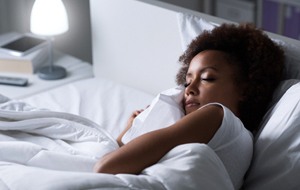
Just like many other medical conditions, sleep apnea comes with some risks if it’s left untreated. Thankfully, at Olberding Dental, we offer amazing treatments to help our patients get the rest they deserve. At the same time, we know there are cases of unknown or untreated sleep apnea, which is why we want to include some of the more significant dangers it can cause. Read on to learn more about the ways that sleep apnea can affect your health.
Learn More About Dangers of Sleep Apnea
Adverse Health Affects Associated with Sleep Apnea
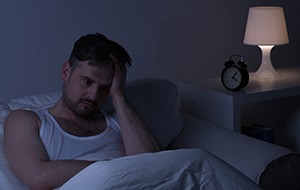
There are numerous adverse health effects associated with sleep apnea. Perhaps the most obvious is the serious detriment to health that occurs due to a lack of sleep. People who are exhausted are more likely to become ill and be in accidents. In addition to severe exhaustion, sleep apnea also elevates blood pressure. Each time you experience an apnea event, your body triggers a panic reaction to restart breathing. This elevates blood pressure and places strain on your heart. This increases your risk for cardiovascular disease and strokes.
Oral Appliance Therapy
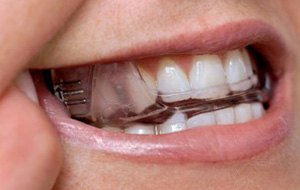
Oral appliances offer many patients with obstructive sleep apnea a viable alternative to CPAP therapies. CPAP uses forced air to keep the obstructed airway clear during sleep. Oral appliances perform the same function by repositioning the jaw. If you’ve ever taken a first aid or CPR course, you likely remember that before you begin mouth to mouth, you need to clear the airway. This involves tilting the head back and the jaw forward. This positioning places pressure on the throat muscles to open the airway. The same method is used for oral appliance therapy. Instead of simply repositioning the head to place pressure on the throat muscles, oral appliances are custom-designed to shift the jaw forward, creating the necessary pressure on throat muscles to hold the airway open. This allows patients to breathe deeply and sleep soundly through the night.
State-of-the-Art Diagnosis & Treatment Planning
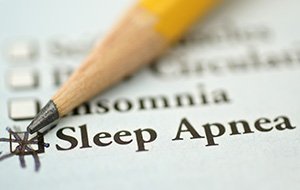
We use our 3D CT scanner to accurately diagnose sleep apnea and create a custom oral appliance to precise specifications. The 3D images we produce allow us to see exactly how the oral and facial structures are working together. When we create an oral appliance, we can use the CT scanner to ensure your airway is clear so you can sleep soundly through the night.
Understanding the Cost of Sleep Apnea Therapy
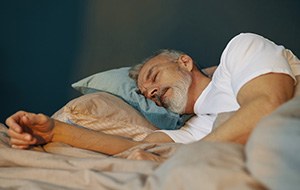
The cost of sleep apnea therapy depends on a few factors, including the specific type of treatment you receive. During your consultation, our team can share some specific numbers with you. We will also be happy to help you understand your payment options, such as insurance and low-interest financing from CareCredit. Remember that sleep apnea treatment is an investment in your health and wellness that can deliver long-lasting benefits and save you money in the long run!
Does Dental Insurance Cover the Cost of Sleep Apnea Therapy?
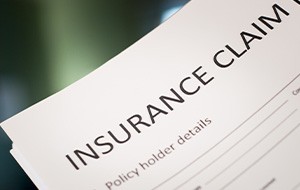
Even though we are a dental practice, you should not expect your dental insurance to cover your sleep apnea therapy. That is simply because sleep apnea is usually classified as a systemic health problem, and treatment for it can be provided by a range of different types of providers. Therefore, your medical insurance is more likely to provide coverage.
Factors That Affect the Cost of Sleep Apnea Therapy
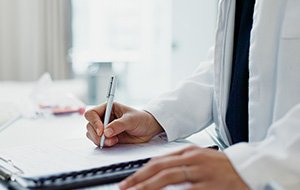
The cost of your treatment may be affected by:
- Your insurance coverage. Health insurance usually covers at least a portion of the cost of sleep apnea diagnosis and treatment, including oral appliance therapy. Our team can provide you with documentation that you can submit to your insurance company for reimbursement. Keep in mind, though, that you may need to seek preauthorization first.
- The type of treatment you receive. CPAP therapy and oral appliance therapy come at different price points. There are also different types of oral appliances that can vary in price.
Treat Your Sleep Apnea Now to Improve Your Health

At first, you might think that sleep apnea therapy is expensive. However, it can support your health and help you save money in the long run!
- Reduced risk of disease. Poor quality sleep can increase your risk of heart attack, stroke, dementia, and other devastating conditions. Sleep apnea treatment may delay or prevent the onset of such problems, which can protect your quality of life and reduce overall medical expenses.
- Reduced risk of an accident. High-quality sleep allows you to be more alert when driving and doing other potentially dangerous tasks.
- Improved performance at work. Good health can help you be more productive at work, allowing you to reach your career potential.
Making Sleep Apnea Therapy More Affordable

Talk to our team to learn about your options for paying for sleep apnea therapy. Beyond insurance, another provision that you might take advantage of is low-interest financing through CareCredit. The application process is easy, and most patients are quickly approved for a reasonable payment plan. You can also ask if our in-house membership plan may be able to help you save on treatment.
Sleep Apnea (Obstructive Sleep Apnea) FAQs
Why Should I See a Dentist for Sleep Apnea Treatment?
People are often surprised to hear that a dentist can help them with sleep apnea, but as a part of learning more about oral health we become experts in the entire upper respiratory area. Obstructive sleep apnea is a consequence of the way that the soft tissues in the mouth obstruct breathing, and we dentists have a strong understanding of how repositioning the jaw can influence the state of your airway.
You probably also see a dentist more often than you see a sleep doctor, which makes them a good person to ask if you’re curious to learn more about sleep apnea.
Does Everyone Who Snores Have Sleep Apnea?
Most people associate sleep apnea with intense snoring, but this isn’t necessarily accurate. Not everyone who snores has sleep apnea, and not everyone who has sleep apnea snores. Women’s sleep apnea in particular tends to present without much audible snoring.
The only way to know for sure whether you have sleep apnea is to participate in a sleep study. If you find that you’re tired no matter how much you sleep it may be worth talking to someone about this condition, regardless of whether you snore or not.
Will Oral Appliance Therapy Make CPAP Therapy Unnecessary?
CPAP machines are the first treatment people will try when it comes to sleep apnea. They work by physically forcing air through the airways, making them uncomfortable but effective.
However, oral appliances can be used to adjust the position of the airway, thereby allowing you to breathe more freely. They can be used in this way as a more comfortable alternative to CPAP machines, particularly for patients with mild-to-moderate sleep apnea. However, those with a more severe case of the condition may not be able to fully treat their issues this way. We’ll be able to tell you more about whether this treatment is right for you when we meet in our office.
Will My Sleep Apnea Go Away If I Lose Weight?
Being overweight is a risk factor that contributes to sleep apnea, as excess weight makes it more common for soft tissues to block airways during sleep. If you’re obese and you lose weight, you might find that your breathing improves in general, and that the symptoms of your sleep apnea gradually fade.
However, this isn’t a certainty—people can develop sleep apnea for reasons that have nothing to do with their weight, or that are only exacerbated by it. You’d have to conduct another sleep test to determine for sure whether the condition has faded completely.
